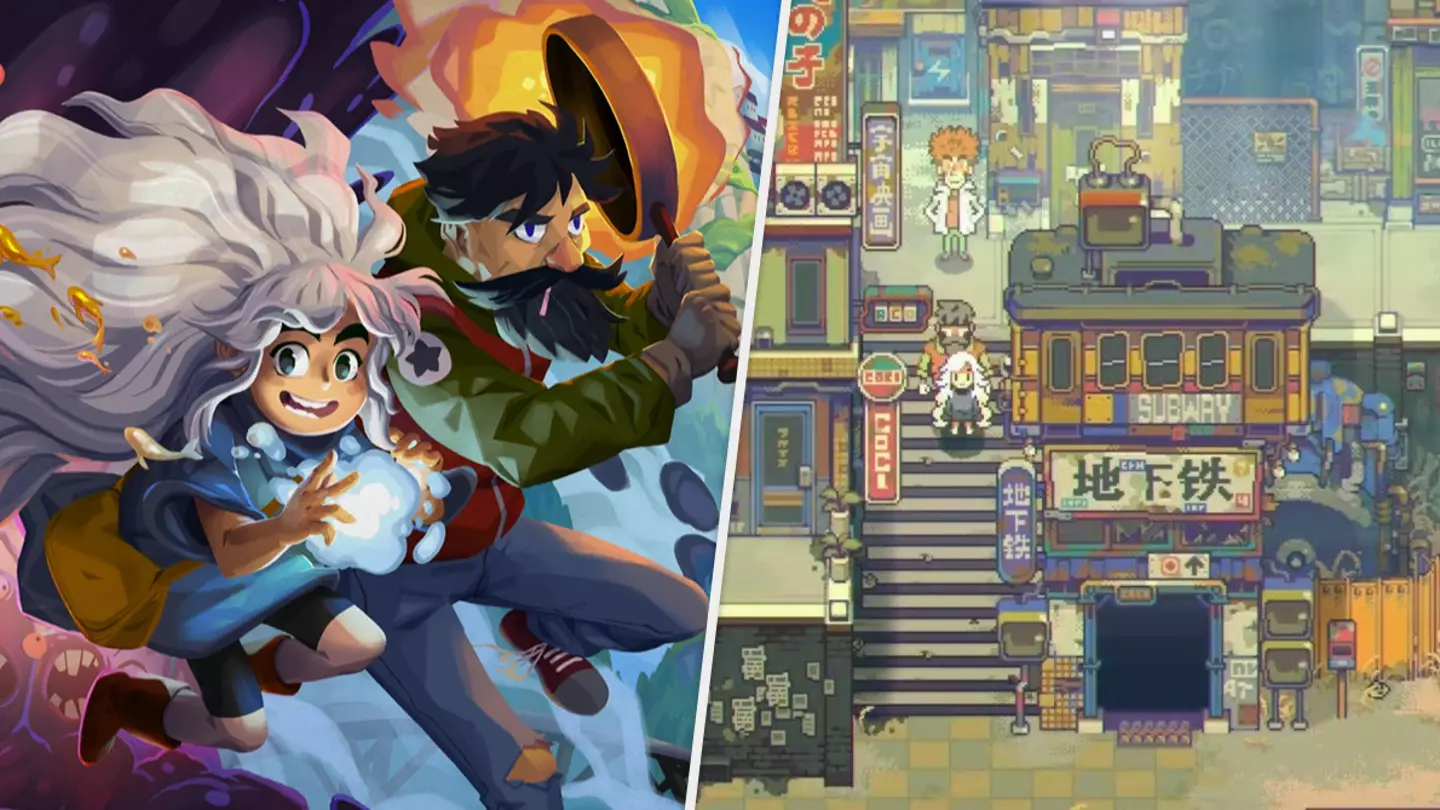
The best video game soundtracks are the ones that stay with you long after the final credits have rolled and you’ve moved on to new adventures. They worm their way into your heart and mind, effortlessly evoking the essence of the characters you met and the journeys you shared with a few simple notes.
The criminally underrated 2021 RPG Eastward boasts just such a soundtrack. Composer Joel Corelitz’s sprawling 72-track creation is the culmination of years of hard work and one pandemic. It’s a constantly evolving and consistently surprising masterclass in nostalgia that oozes 8-bit funk and retro adoration. A love letter to days gone by that is wholly unafraid to leave its own mark on a well-explored genre - one that was never supposed to be what it ultimately grew into.
“I only intended to write an hour!” Joel tells me over Zoom. “I think it was probably 30-odd tracks originally? Definitely, it was less than 40. So roughly, it roughly kind of turned into double the amount of work we initially planned for.”
Advert
Joel first connected with Eastward developer Pixpil after the studio heard some of his work on music for a Kickstarter game that unfortunately didn’t meet its goal. The hazy, thumping NES-inspired track, which eventually became ‘Iron Carbine’ in Eastward, was exactly the vibe Pixpil was after for its budding RPG.
“It was a very meaningful piece to include on Eastward,” Joel tells me. “We actually didn't make that decision until fairly late in the process, pretty close to when the release trailer came out. So that was the piece that kind of kicked off our relationship back in 2016.”
One of the most impressive things about Eastward’s music is the apparent ease with which it’s able to capture the mood of any given moment. This is a game that features a train full of sentient monkeys obsessed with making movies, friendly cooking contests, and a terrifying wave of death that destroys everything in its path. It has a lot of moods, but it was a challenge Joel was more than capable of rising to.
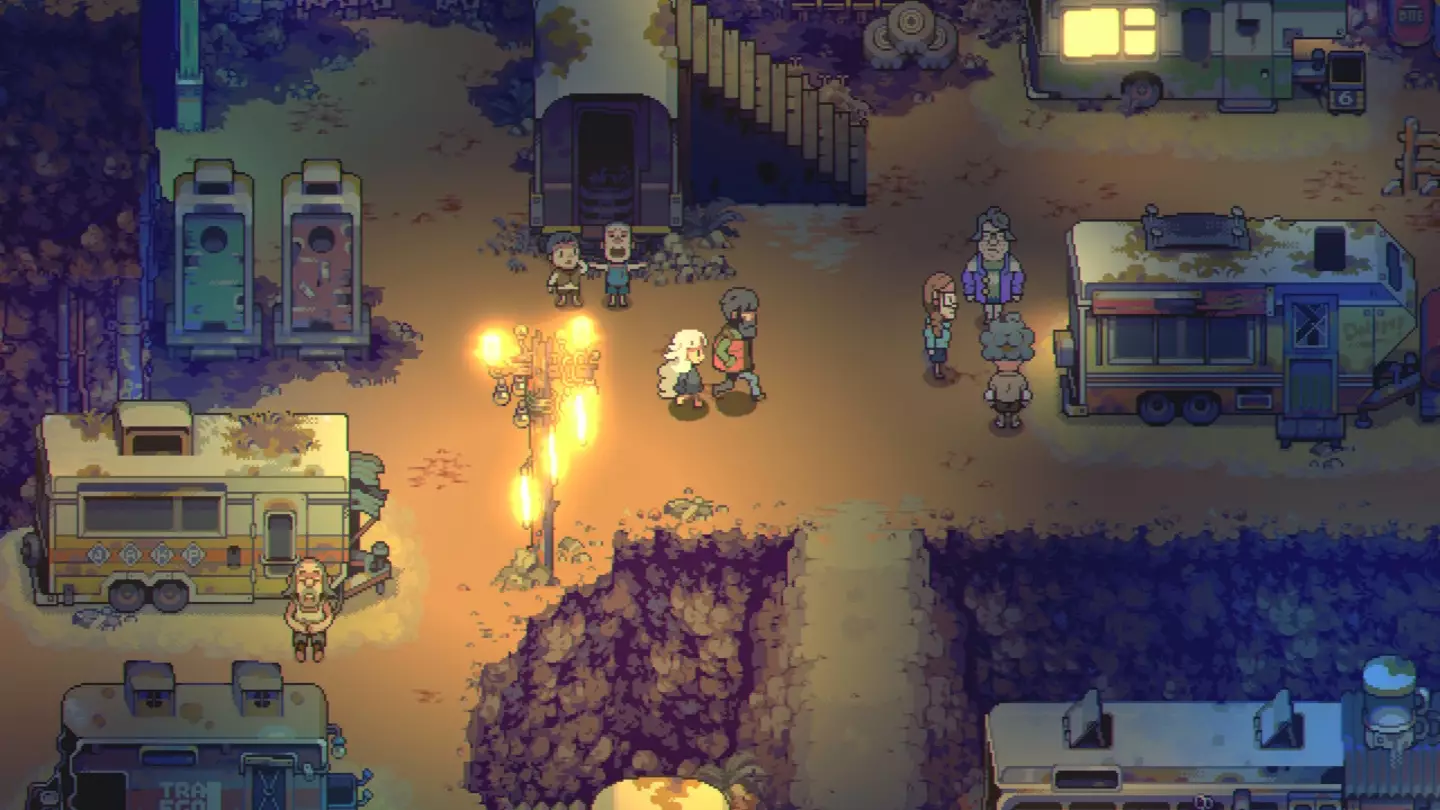
“This is often the part of being a composer that is not as obvious sometimes,” Joel says of working out what, exactly, any given scene or level is going to sound like. “Because when you hear a soundtrack, you're hearing the final output of what the composer decided to do for a game. But a huge part of my job is figuring out exactly what you just asked, which is, where should music go? What does the music sound like? What's the tone? What do we want the player to feel?
Advert
“Essentially, it’s coming up with a design language for the world of Eastward. And for every project that I work on. And so it's a combination of kind of coming up with a system for how music lives in the game, which is very functional.”
Eastward is a gorgeous pixel-art game designed to evoke RPGs like Earthbound and Chrono Trigger, but Pixpil also wanted to build on those classics in its own way. It’s an approach Joel took on board when composing the music.
“It's not just about nostalgia,” he stresses. “The way that music tends to work in pixel-art games, it follows a character, a mood, or a place. And so the music in Eastward is essentially presented as a living playlist where the music changes depending on what situation you're in. I think it always makes sense to start with something that's a little bit more general and zero in on some of the more specific characters or main themes. But you have to start somewhere. So we actually started with Alva’s theme [‘The Curious Princess’]. That was the first very first piece that I wrote. Then we were able to apply that language to some of the other pieces. And then you slowly build out the world from there.
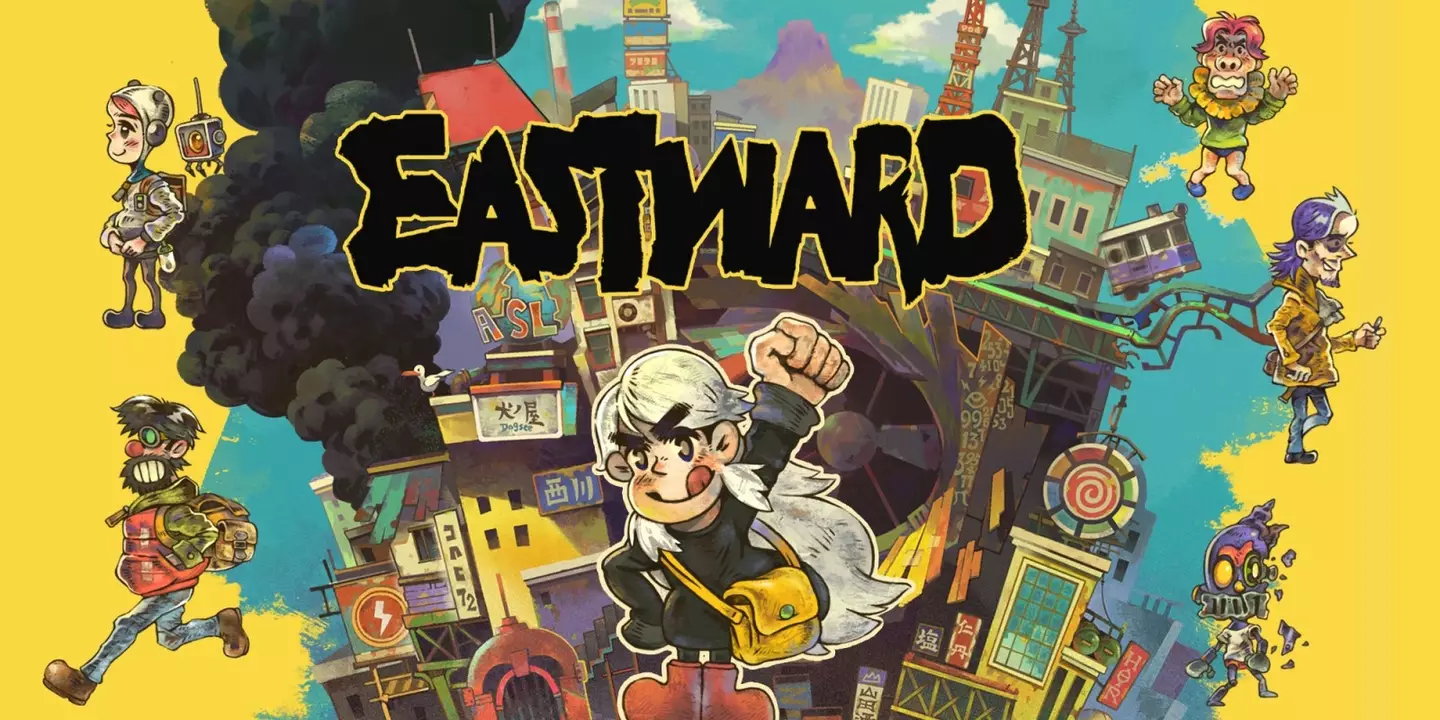
Building out the world of Eastward is a process that took Joel and Pixpil (a studio of just ten) close to half a decade. This is partly why the soundtrack ballooned to an incredible 72 pieces, as mentioned, but a lot happened between 2016 and 2021. How did the outside world, most notably a deadly pandemic, affect Joel’s work?
Advert
“Day-to-day life as a composer didn't change too much as a result of lockdown,” he admits. "Being a composer tends to be a solitary craft. So I was in my studio working kind of the same except for the fact that there were kids around! So I think in some ways, ironically, life around me as a result of lockdown became more active.
“But it was also a very tumultuous time, it was a very emotional time. I think a lot of the more emotional pieces in Eastward have risen to the top as being people's favourites. A lot of the ambient pieces, the really kind of simple, very sparse ambient pieces like ‘Silent Mist’ came after that. And I think there's a reason for it. I think it was a time to be introspective.”
Joel’s sheer adoration for video games and video game music - particularly from the NES and SNES era - is obvious. Growing up in the 80s, it was the original Metroid that unlocked something in him and set him on his path.

“I don't know what it was specifically about that game,” he says. “But I think it was the way that the soundtrack was able to conjure such emotion with such simple sounds. Even listening to it now, it did things that soundtracks for the NES weren’t doing. It actually attempted ambient music. It was somewhat experimental. It was a revelation when I heard it. It's just beautiful. And I still have so much affection for it. So I think that really, to me, stands out.”
Advert
Despite a particular love for this era of music, it’s not particularly something Joel had previously explored in his work. An impressive CV includes games like The Unfinished Swan, Halo Infinite, and Death Stranding, but the music of Eastward is perhaps his finest yet.
“On an indie game, I generally am the music supervisor, and the composer. So I'm supervising myself,” he explains. “And I think that combination of having to supervise myself and having to make a lot of the decisions about where the game lives, how it's presented, what the design language is, is really great for growth. Because I always want to keep growing and expanding as a composer. And that's a way to do that.
“A game like Halo already has its design language. My role on that project is to figure out how to communicate in the voice of that score. But at the same time, bring something out of it. I have a supervisor on those projects. That’s to help, and to probably push me harder than I would push myself. And I always come out of those projects feeling like I've grown in other ways as a composer. And so that's the main difference for me.”

Eastward’s 72-piece behemoth is very much Joel’s baby, then. Certainly, listening to it always leaves me with the clear impression that it’s exactly the kind of soundtrack he’s longed to make for years.
Advert
“I love immersing myself in different styles, different worlds, different sensibilities,” Joel says with a smile. “But I’ve always wanted to do a soundtrack with more callbacks to what initially inspired me to do this, even though I never want to be too specific or prescriptive about genre. I would never say I was a chiptune composer. But I love those sounds!
“I love that Eastward was kind of my first opportunity to do something like that. It was a good opportunity to try and figure out how to have nostalgia be a component of the soundtrack without having it be the leading component of the soundtrack.
“Eastward uses a lot of 8-bit pieces in a more 16-bit world. It’s something that I thought through. When you're conjuring nostalgia, in my opinion, anything is fair game. So there are pieces that are inspired by the 8-bit generation. There are pieces that are inspired by the 16-bit generation.”
Eastward’s music is familiar and fresh all at once, and has quickly - and deservedly - become a huge hit among video game fans. It’s thrilling to learn, then, that a truncated version of the full soundtrack is being made available physically in the form of an achingly gorgeous vinyl double album from iam8bit. Purists will be thrilled to learn Joel was involved in this release every step of the way - but how on Earth did he whittle 72 tracks down to 44?
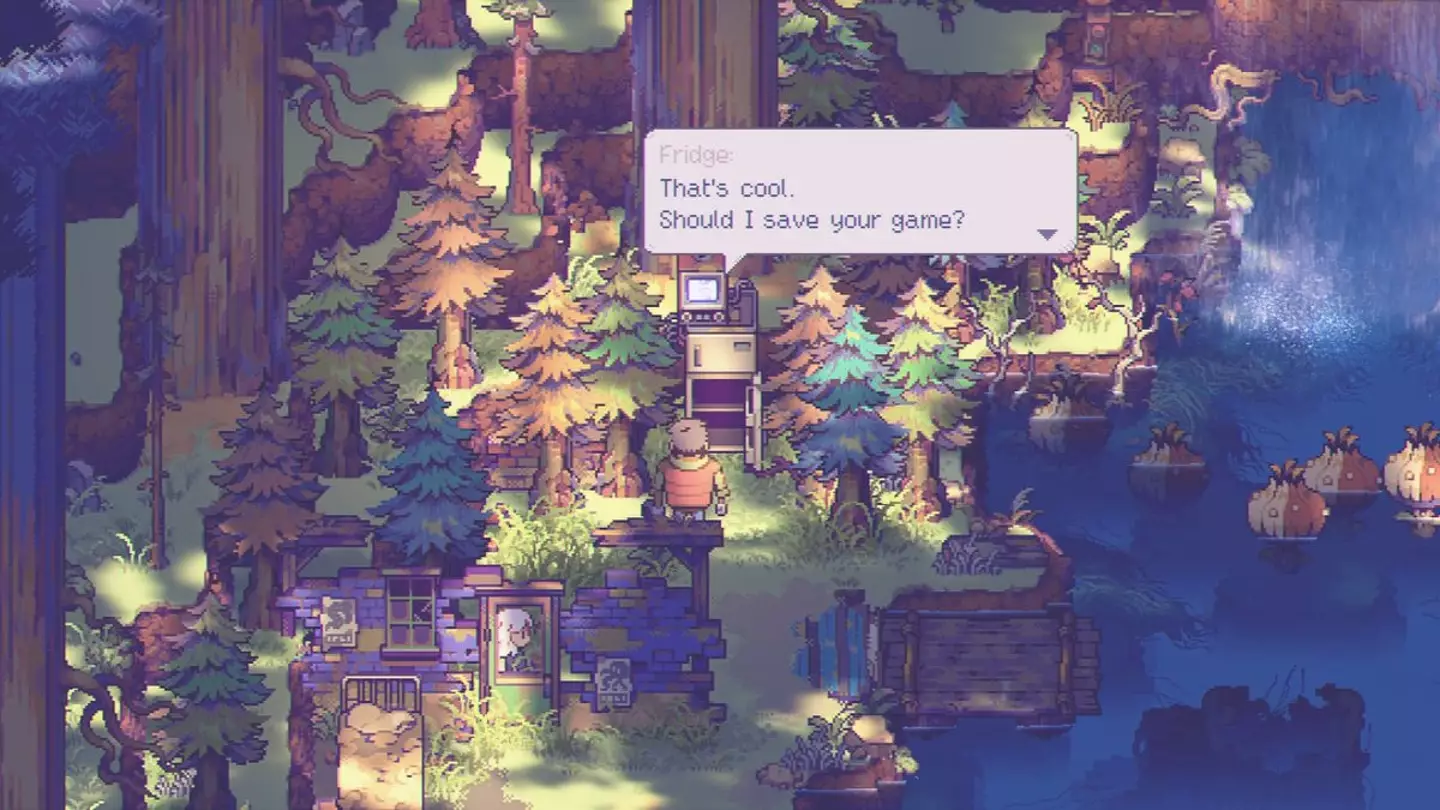
“It was very difficult,” Joel laughs. “Unfortunately ‘Iron Carbine’ didn't make the cut, but only because we decided to put that in the game after we decided on the tracklist. So it was, it was really hard, because we were cutting it down to a little more than half.
“The general rules were if something gets used a lot, or if it's central to a character or a place like or, or a mood, it generally had a place on the soundtrack. Some of the more supportive pieces that you only hear once or twice, maybe didn't. But it was sort of also more of a gut reaction. Does this piece feel like a core piece? And of course, they all are, right?! So it was really hard.”
Shortened tracklist aside, the upcoming vinyl serves as a fitting testament to Joel’s passion, and the sheer amount of personality he poured into every last second of Eastward. It’s a soundtrack that, much like the game itself, takes us on a journey to the unknown via the comfortingly nostalgic.
With the world of Eastward in the rearview mirror (for now, at least), Joel is already looking to the future. He’s currently working alongside Troupe Gammage on Hyper Light Breaker, the surprise sequel to Heart Machine’s critically acclaimed Hyper Light Drifter, which he describes as “such a cool evolution” of the first game’s universe. He’s also particularly enamoured right now, as we all are, with the music of Elden Ring.
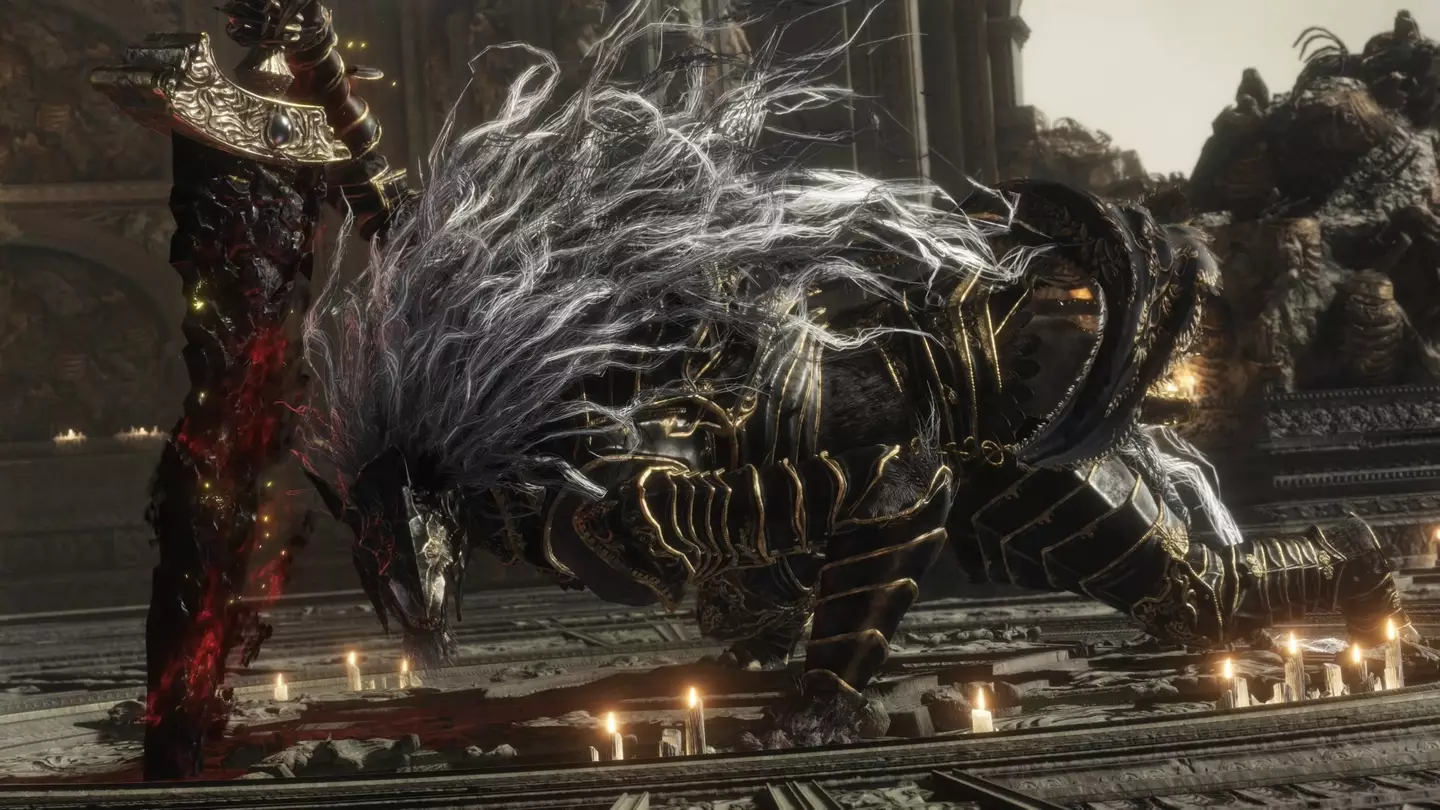
“I think the music in Elden Ring is so well done. Functionally it's the perfect companion, even though it's very minimal. It's so tastefully done,” he gushes. “Sometimes I think that the right piece always comes down to what the function is in the game. When it's done well, it makes the experience. It just solidifies the experience.
“And I think Elden Ring does it so well. You're in a certain place, and it just makes you feel slightly unsettled. And it's perfect. It's the perfect device. I'm always a sucker for anything that gives you a sense of the sublime. Just an experience where you feel like there is something bigger than you. And I think that's why I tend to gravitate toward FromSoftware. Bloodborne did that so well, where it's like you play this and you're like, there are these moments where you just feel like you're trying to grapple with something unknowable. And I love that feeling.”
It’s unclear what the future holds for Eastward. Whether it will get a sequel remains to be seen. Whether it even needs a sequel is up for debate. But if the one game really is all we get? Then we can take great comfort in knowing that Joel Corelitz’s weird, affecting, and deeply catchy 72 tracks will stand forever as a timeless reminder of one of 2021’s best games.
Featured Image Credit: Chucklefish/iam8bitTopics: Indie Games